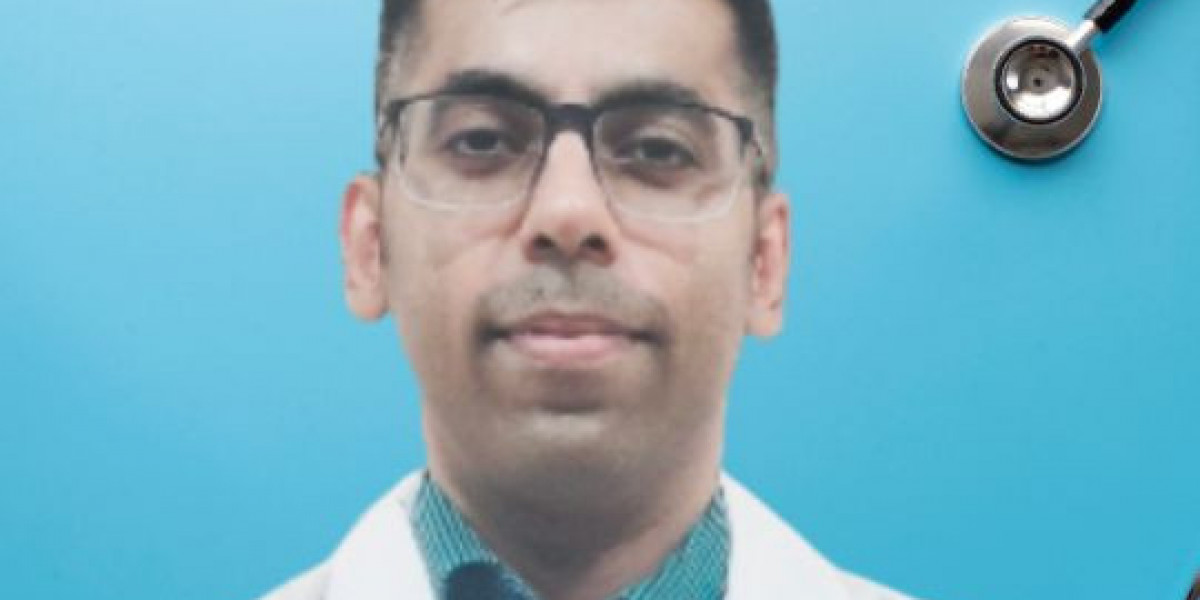Uterine cancer, also known as endometrial cancer, is one of the most common gynecological cancers affecting women. A diagnosis of uterus cancer can be overwhelming, but understanding what to expect during treatment can help ease concerns and prepare patients for the journey ahead.
In this guide, we’ll walk through the key stages of uterus cancer treatment, including diagnosis, treatment options, and recovery.
If you're looking for expert care, Dr. Kanuj Malik, a highly experienced surgical oncologist with 14 years of expertise, provides comprehensive treatment for uterus cancer.
As a leading uterus cancer specialist in Noida, Dr. Malik ensures that patients receive personalized and effective care tailored to their condition.
Understanding Uterus Cancer Diagnosis
Before beginning treatment, your doctor will conduct several tests to confirm the presence and stage of uterus cancer. Some common diagnostic procedures include:
- Pelvic Examination – The doctor checks for any abnormalities in the uterus, cervix, or ovaries.
- Ultrasound (Transvaginal and Abdominal) – This imaging test helps detect tumors or unusual tissue growth.
- Endometrial Biopsy – A sample of tissue from the uterus lining is collected and examined for cancerous cells.
- MRI, CT Scan, or PET Scan – Advanced imaging techniques may be used to determine the extent of cancer spread.
Once diagnosed, your oncologist will discuss treatment options based on the stage of cancer, overall health, and personal preferences.
Treatment Options for Uterus Cancer
The treatment plan for uterus cancer typically includes one or a combination of the following:
1. Surgery (Hysterectomy and Lymph Node Removal)
For most women, surgery is the first step in treatment. A hysterectomy, which involves removing the uterus, is commonly performed.
In some cases, the ovaries and fallopian tubes may also be removed. If cancer has spread, lymph node removal may be necessary to prevent further spread.
Dr. Kanuj Malik specializes in advanced surgical techniques that ensure precise removal of cancer while minimizing post-surgical complications.
As a leading uterus cancer specialist in Noida, he provides expert surgical care, helping patients achieve the best possible outcomes.
2. Radiation Therapy
Radiation therapy uses high-energy rays to target and destroy cancer cells. It is often recommended after surgery to eliminate any remaining cancerous cells and reduce the risk of recurrence.
Types of radiation therapy include:
- External Beam Radiation – Delivers radiation from a machine outside the body.
- Brachytherapy – Places radioactive material directly inside the uterus for targeted treatment.
3. Chemotherapy
Chemotherapy involves using powerful drugs to kill cancer cells. It is generally used when the cancer is advanced or has spread beyond the uterus. It may be administered orally or intravenously in multiple cycles.
4. Hormone Therapy
Hormone therapy is used for certain types of uterus cancer that rely on hormones to grow. Medications such as progesterone or estrogen-blocking drugs can slow down or stop cancer growth.
5. Targeted Therapy and Immunotherapy
Advanced treatment options like targeted therapy and immunotherapy are being explored for uterus cancer. These treatments focus on attacking cancer cells while sparing healthy cells, leading to fewer side effects.
What to Expect During Recovery?
Hospital Stay and Post-Surgery Care
If you undergo surgery, you may need to stay in the hospital for a few days. Pain management, wound care, and gradual movement are essential aspects of recovery.
Managing Side Effects
Each treatment comes with its own set of side effects. Some common ones include:
- Fatigue – Resting and maintaining a healthy diet can help regain energy.
- Nausea and Vomiting – Often associated with chemotherapy; medications can help manage symptoms.
- Changes in Hormone Levels – If the ovaries are removed, menopause-like symptoms may occur.
Follow-Up Appointments
Regular follow-up visits with your uterus cancer specialist in Noida are crucial to monitor recovery and detect any signs of recurrence.
Dr. Kanuj Malik ensures that each patient receives continuous post-treatment care, focusing on long-term health and well-being.
Support and Lifestyle Changes
Emotional and Mental Support
A uterus cancer diagnosis can be emotionally challenging. Seeking support from loved ones, joining cancer support groups, or consulting a therapist can help cope with the journey.
Healthy Diet and Exercise
Eating a balanced diet rich in fruits, vegetables, and lean proteins can aid in recovery. Light exercise, such as walking or yoga, can improve strength and reduce fatigue.
Long-Term Health Monitoring
Even after successful treatment, regular health check-ups and screenings are necessary to prevent recurrence and manage overall well-being.
Conclusion
Being diagnosed with uterus cancer can be daunting, but knowing what to expect during treatment can empower patients to make informed decisions.
Whether undergoing surgery, radiation, or chemotherapy, the journey to recovery requires expert medical care and emotional support.
Dr. Kanuj Malik, a renowned uterus cancer specialist in Noida, is dedicated to providing cutting-edge treatments with a compassionate approach. His expertise in surgical oncology ensures that patients receive the best possible care at every stage of treatment.
If you or a loved one has been diagnosed with uterus cancer, seeking professional guidance can make a significant difference in the journey toward recovery.
For personalized treatment and expert care, consult Dr. Kanuj Malik today.
Qure Clinic
Address - Shop No 143 1st floor, Cleo Street, near CLEO COUNTY, Sector 121, Noida, Uttar Pradesh, 201301
Email – kanujmalik03@rediff.com
Phone - +91 9315430568
Monday To Saturday – 9:00AM–9:00PM
Sunday closed
Google Map Location Listing - https://g.co/kgs/BfrTkmW










